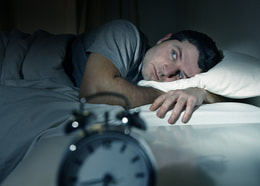|
There are a host of possible reasons you might not be sleeping well , including medical or physical possibilities that you want to get evaluated by your doctor. Your insomnia might also might be related to stress, poor sleep hygiene habits, depression, tension at work, worry and rumination, or a host of other issues that might be keeping you up at night. I've listed below some of the areas to work on if you're not sleeping well. Some of these are hard to accomplish, especially in the beginning as you are just starting to address your insomnia. Some people need help and feel anxiety just thinking of making these changes. You might notice that stopping some of the habits you have now increases anxiety or frustration when you first start. Remember, your goal is to change habits in the long term so you can get good sleep every night, not get a good night's sleep for one night. Start slow, stay committed, and get help if you need it. Start slow if you need to, and seek help from a therapist for support and guidance. Pick one or two areas you're willing to change at a time. And don't forget that it might be a good idea to see your physician to rule out any medical reasons for insomnia.
© Connie Linas, LCSW (LCS22837), a financial therapist, relationship counselor, and psychotherapist in Oakland, California specializing in the areas of money, anxiety, and relationships.
Comments are closed.
|
AuthorConnie C. Linas, LCSW Categories
All
Favorite Posts: |
CONNIE C. LINAS, LCSW
California License #LCS22837
Virtual APPOINTMENTS AVAILABLE WITH ALL CALIFORNIA RESIDENTS
NORTH OAKLAND OFFICE:
6355 TELEGRAPH AVE. #303
OAKLAND CALIFORNIA 94609
510-338-6655
[email protected]
6355 TELEGRAPH AVE. #303
OAKLAND CALIFORNIA 94609
510-338-6655
[email protected]
© 2023 Connie Linas, LCSW
